
Past Award Winners
Please use the filters below to view the recipients from a specific year
Paul Bieniasz
for ‘demonstrating the use of biochemistry in helping combat infectious diseases’
Paul Bieniasz
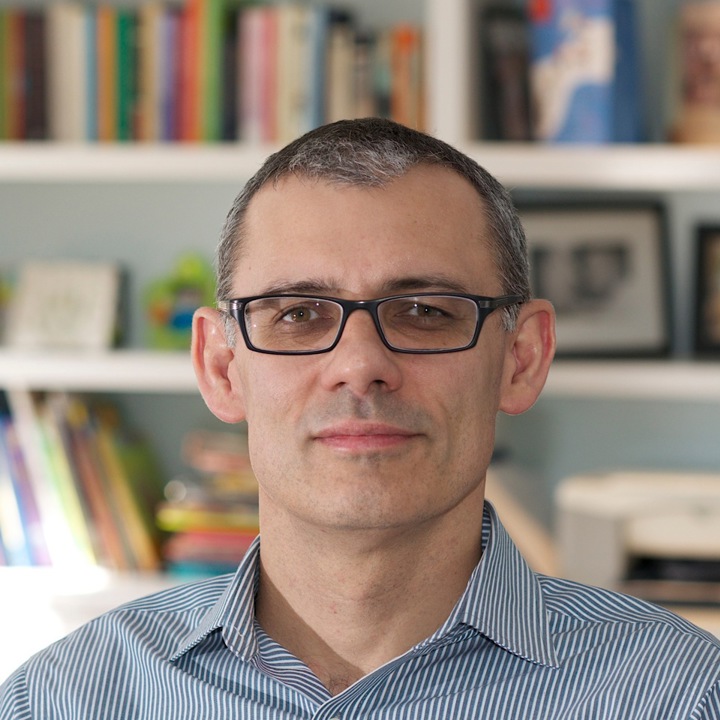
The 2019 Biochemical Society Award was presented to Paul Bieniasz from The Rockefeller University, USA. Paul has made major contributions to our understanding of HIV-1 replication. His group helped to elucidate how the ESCRT proteins are recruited by HIV-1 and other viruses to drive particle release, resolved controversies over the location in the cell where HIV-1 virion assembly occurs and illuminated how HIV-1 packages its RNA genome. With collaborators he developed techniques that allowed the first moving images of the genesis of individual virus particles in living cells to be captured. His group has also discovered several host antiviral mechanisms, including proteins that prevent the release of viral particles from cells, inhibit nuclear import of incoming HIV-1 DNA and enable recognition and elimination of non-self RNA molecules based on their nucleotide composition. His group used knowledge of host variation in antiviral proteins to break host range barriers and develop a macaque model of HIV-1 infection. He has also pioneered the field of ‘paleovirology’, showing that extinct retroviruses and their proteins can be resurrected in functional form from molecular fossils that are present in modern genomes.
Of winning the Biochemical Society Award, Paul said “I am surprised and delighted to be receiving the Biochemical Society Award. This honor recognizes the efforts and achievements of colleagues, past and present, as much as it does my own work. I am especially grateful to my wife and scientific partner, Theodora Hatziioannou, who has made me a better man and a better scientist”.
R. John Ellis
R. John Ellis

The 2019 Centenary Award was presented to R. John Ellis from the University of Warwick, UK. John has made fundamental discoveries through the study of the mechanism of protein folding essential for light harvesting and photosynthesis. His work focused on the pathway by which the key enzyme of photosynthesis (RUBISCO) – the most abundant protein on earth – is made and assembled in plant cells. From this specific case, John developed key concepts which have revolutionized thinking about how proteins assemble and fold in all cells. John termed these other proteins that assist in protein folding and assembly ‘molecular chaperones’ and his key insight showed that these chaperones are not restricted to the protein assembly pathway that he studied, but exist universally in all cells.
Melina Schuh
Melina Schuh
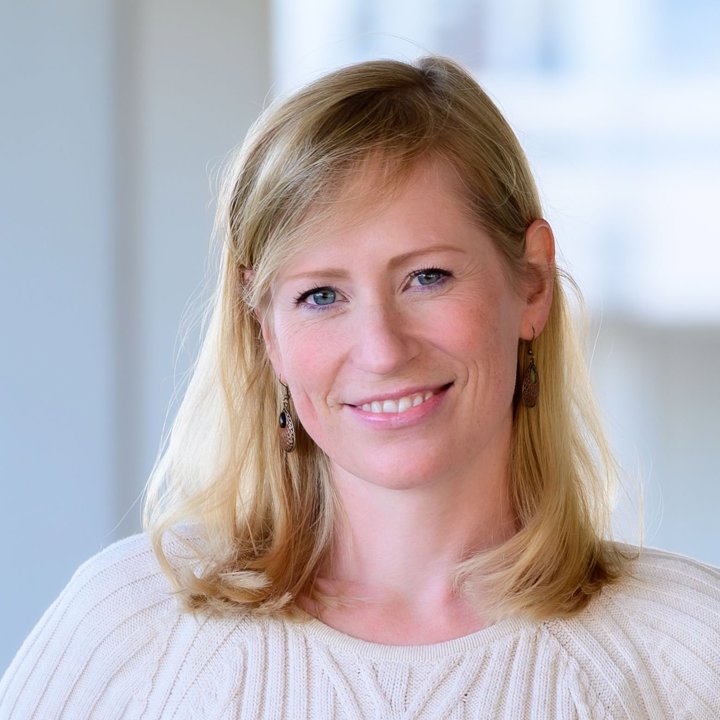
The 2019 Colworth Medal was presented to Melina Schuh from the Max-Planck-Institute for Biophysical Chemistry, Germany. Melina investigates how chromosome segregation errors arise during the meiotic divisions of mammalian eggs. Aneuploidy in eggs is a leading cause of pregnancy loss, congenital disorders and the age-related decline in female fertility. During the early stages of her career, Melina Schuh established methods for high-resolution microscopy of live mouse oocytes, the progenitor cells of eggs. This work paved the way for in-depth intracellular studies of meiosis in mouse oocytes, which had only been observed at very low resolution up to this point. Using this technology, she revealed how the spindle, the machinery that separates the chromosomes, assembles. She also uncovered key mechanisms that are involved in the extremely asymmetric divisions of the oocyte, which are essential to preserve the oocyte’s material for the development of the embryo. Moreover, she developed technology for high-content screens in mouse oocytes. This technology overcame multiple obstacles that had precluded high-content screens for meiotic genes in mammals in the past. Her laboratory then went on to establish methods that allowed them to carry out the first studies of meiosis in live human oocytes. Through this work, they could determine the precise sequence of events that is involved in the formation of a fertilisable egg in humans, and identify steps in this process that are particularly error-prone. Unexpectedly, they found that spindles in human oocytes are highly unstable and frequently incorrectly attached to chromosomes. These incorrect attachments lead to problems when the chromosomes of the oocyte need to be separated in preparation for fertilization. Melina Schuh’s work also shed light on why aneuploidy in eggs increases as women get older: They found that chromosomes in human eggs disintegrate as women get older. This disintegration causes chromosomes to orient abnormally on the spindle and precludes their accurate separation. More recently, her laboratory developed a new method for protein degradation that is called Trim-Away. This method is the first widely applicable protein degradation method that acts directly on the level of the endogenous protein.
Melina said: “I was absolutely excited when I found out that I will receive the Colworth Medal. This is a great honour, and I would like to thank the Biochemical Society for this prestigious recognition of our work. A significant part of my independent research has been carried out at the MRC Laboratory of Molecular Biology (LMB) in Cambridge, UK. The time that I have spent at the LMB has been a scientifically fruitful and personally very enriching time. I would like to take this opportunity to thank the many wonderful colleagues and mentors at the LMB who have supported me throughout this time. I am also grateful to the fantastic PhD students and postdocs I have had the pleasure to work with. Studying mammalian oocytes is technically very challenging – none of this would have been possible without their curiosity, perseverance and enthusiasm.”
Read Melina's article published in Biochemical Society Transactions - Aneuploidy in human eggs: contributions of the meiotic spindle
Michael Booth
Michael Booth
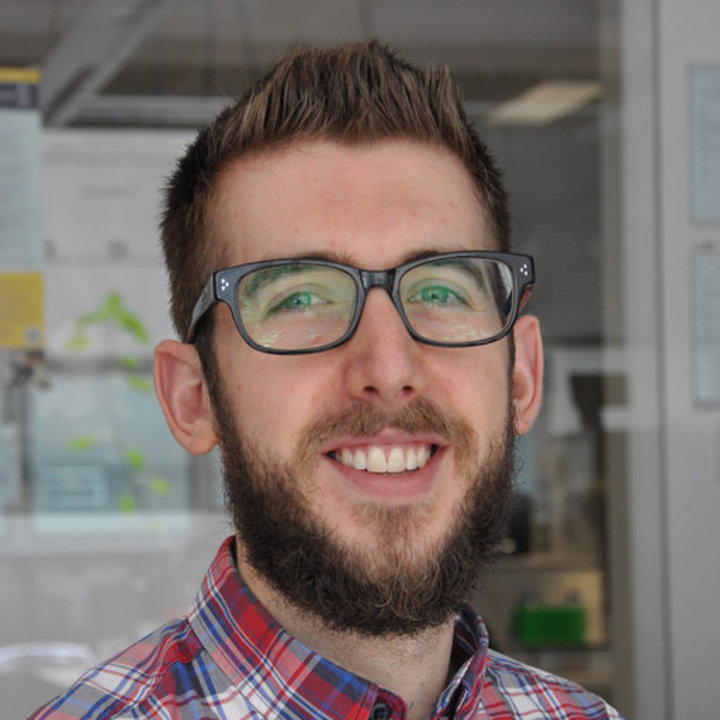
The 2019 Early Career Research Award for Biotechnology was awarded to Michael Booth from the University of Oxford, UK. Michael developed novel DNA sequencing techniques for the detection of two newly discovered modified DNA bases. These newly discovered modified bases had been implicated in human development and disease progression; however, there were no sequencing techniques to precisely map them in the genome to uncover their functional relevance. Furthermore, these sequencing techniques have been patented and spun-out into a company, Cambridge Epigenetix. Cambridge Epigenetix now markets the technique as a kit under the name ‘TrueMethyl®’. Michael currently based in the group of Hagan Bayley as a postdoctoral researcher, and was awarded a Junior Research Fellowship at Merton College Oxford, held from 2014-2017. Here Michael synthesised light-activated DNA and demonstrated its use to stringently control protein expression in synthetic tissues. These synthetic tissues act as functional mimics of neuronal transmission that can be controlled in a precise way.
Of winning the Early Career Research Award for Biotechnology, Michael said: “I was absolutely delighted to find out I have been awarded the Early Career Research Award in Biotechnology by the Biochemical Society. I would very much like to thank two important mentors from my research career, Sir Shankar Balasubramanian and Hagan Bayley, and their respective research groups.”
Michael presented his award lecture at the Biochemical Society conference ‘Synthetic Biology UK 2019‘ on 9-10 December 2019 at University of Warwick, UK.
Ana Casañal
Ana Casañal

The 2019 Early Career Research Award for Genes was presented to Ana Casañal from the MRC Laboratory of Molecular Biology, University of Cambridge, UK. Ana has been working on the determination of the structure and function of the cleavage and polyadenylation factor (CPF) from yeast. In eukaryotes, mRNA 3′-end processing is a key step in gene expression regulation that involves both cleavage and polyadenylation of the nascent RNA transcripts. CPF is 1 MDa complex that cleaves the nascent mRNA, adds a poly(A) tail and dephosphorylates RNA polymerase II to coordinate transcription. mRNA polyadenylation is deregulated in human diseases and is hijacked by viruses. Therefore it is critical to understand how the mRNA 3’-end processing machinery functions and how its activity can be regulated. Ana’s research provided a breakthrough towards the understanding of 3’-end processing showing a new architecture of CPF and the first cryo-EM structure of its poly(A) polymerase module. Ana’s work provides detailed insight into polyadenylation, and also has broad relevance in gene expression, RNA biology, and multi-protein assemblies.
Of winning the Early Career Research Award for Genes, Ana said: ”I am delighted and honoured to have been selected for the Early Career Research award of the Biochemical Society. This would not have been possible without the support from my PhD and postdoc supervisors, Prof. Valpuesta, Dr. J. A. Marquez and Dr. Lori Passmore. I am extremely grateful to Dr Lori Passmore and Dr David Barford for their encouragement through my challenging research and my colleagues for their contributions to my work and great team effort.”
Ana presented her award lecture at the Biochemical Society conference ‘Translation UK 2019‘ on 3-5 July 2019 at Strathclyde Business School, Glasgow.
Qian Wu
Qian Wu
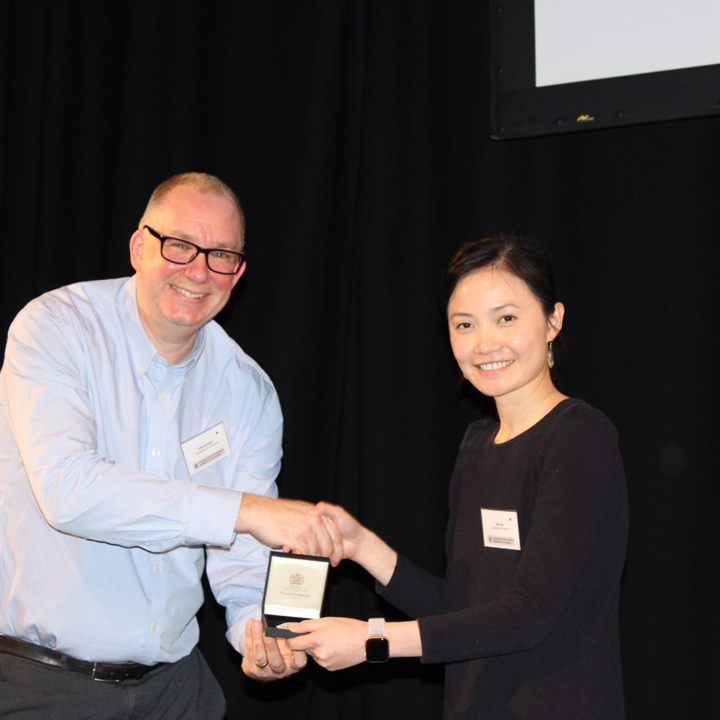
The 2019 Early Career Research Award for Signalling was presented to Qian Wu from the University of Cambridge, UK. Qian’s research focuses on understanding the functional mechanism of human DNA damage response and repair signalling network and identifying potential targets for future drug discovery. By combining different methods, her research explores three major properties of this complicated signalling network: 1. Spatial architecture of individual and protein complexes; 2. Temporal arrangement of these protein complexes; 3. Regulation of protein-protein interaction through post-translational modification. She has made significant contribution to the field by characterizing the structure, function and assembly of various key protein complexes in human Non-Homologous End Joining (NHEJ) pathway for repairing DNA double-strand breaks, which is the most toxic DNA damage types in our cells.
Read Qian's article published in Biochemical Society Transactions - Structural mechanism of DNA-end synapsis in the non-homologous end joining pathway for repairing double-strand breaks: bridge over troubled ends.
Of winning the Early Career Research Award for Signalling, Qian said: “I was absolutely thrilled and extremely happy when I found out that I got this award! It is a great honour as an early career researcher to have my research recognized by the award committee. I can’t achieve this without the strong support from my mentor Professor Tom Blundell since my Ph.D and all these wonderful colleagues in the Department of Biochemistry, University of Cambridge. More excitingly, I am really looking forward to take the encouragement from this award to initiate my own independent research in the Astbury Centre for Structural and Molecular Biology, University of Leeds.”
Qian presented her Award lecture at the joint Biochemical Society, British Pharmacology Society and The Physiological Society conference ‘Life Sciences 2019: Post-Translational Modifications and Cell Signalling‘ on 17-18 March 2019 at the East Midlands Conference Centre.
Luciane Vieira de Mello
Luciane Vieira de Mello

The 2019 Teaching Excellence Award was presented to Luciane Vieira de Mello from the University of Liverpool, UK. Lu has published over 40 research articles in biochemistry and bioinformatics but in 2012 she decided to direct her career towards teaching and learning. Lu’s broad educational research interest focuses on student–staff partnership, internationalisation, and employability. Lu’s contribution has been to devise, test and disseminate a range of novel methods that enable such students to understand and use bioinformatics effectively. Students in science struggle to recognise and reflect on transferable skills gained during their undergraduate and life. Lu designed an online reflective log and a skills audit in a placement module to help students recognise and reflect on the transferable skills gained during their undergraduate degree. The positive impact on student experience has been evaluated, and some of the assessment procedures have since been adopted across the Faculty.
Lu said “I am delighted and honoured to receive the Teaching Excellent Award. I believe it is important to recognise teaching innovations alongside research excellence and applaud the Biochemical Society’s initiative. I am grateful to my colleagues for their support; and to my students for engaging with my teaching innovations. As Paulo Freire said “what the educator does in teaching is to make it possible for the students to become themselves”.
Luciane presented her award lecture at the HUBS Annual Meeting 2019 on 30 April – 1 May 2019 at the Wellcome Genome Campus in Cambridge.
Ervin Fodor
Ervin Fodor

The 2019 AstraZeneca Award was presented to Ervin Fodor of Sir William Dunn School of Pathology, University of Oxford, UK. Ervin’s research focuses on the molecular mechanisms of influenza virus replication, virus-host interactions and host responses to viral infection. His research group played pivotal role in uncovering the RNA-free high-resolution structure of the influenza virus RNA-dependent RNA polymerase and discovering how influenza virus hijacks the host transcriptional machinery for the transcription of its own genes. A reverse genetics system for influenza virus developed by Fodor and colleagues in the late 90s is used for the preparation of a live attenuated influenza virus vaccine for the UK National Childhood Flu Immunisation Programme.
Of winning the AstraZeneca Award, Ervin said: “I am surprised and delighted to receive the AstraZeneca Award; it is a great honour to join the list of previous eminent winners of this award. I would like to take this opportunity to acknowledge the inspirational scientists who mentored me and thank present and past members of my research group as well as my collaborators whose hard work and dedication underpins all of our research achievements. I am also indebted to the Medical Research Council for generously supporting our research for many years.”
Ervin presented his award lecture at the Biochemical Society conference ‘Transcriptions in Health and Disease’ on 20-22 November 2019 in London, UK.
Antonio Vidal-Puig
Antonio Vidal-Puig
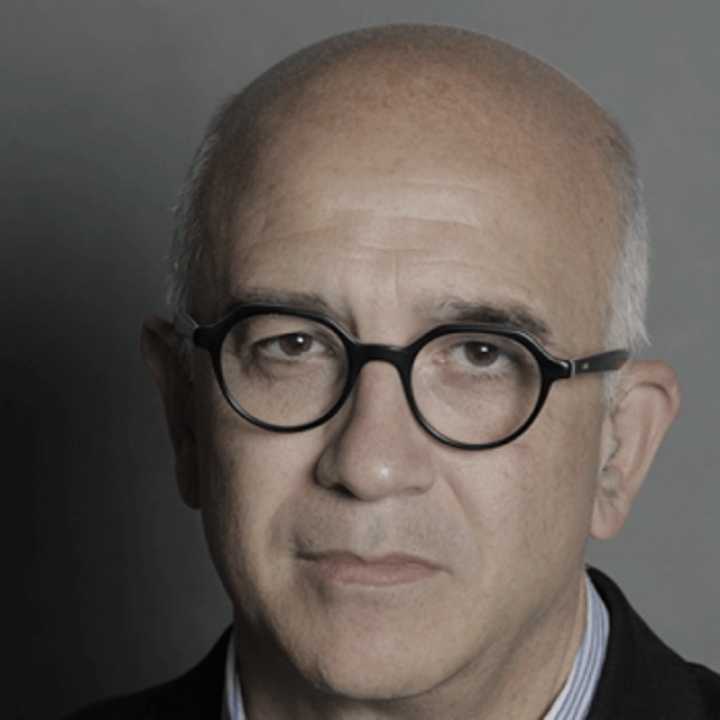
The 2019 Sir Philip Randle Lecture was awarded to Antonio Vidal-Puig from the Wellcome Trust-MRC Institute of Metabolic Science, Cambridge, UK. Antonio’s research focuses on elucidating the molecular mechanisms linking obesity with insulin resistance, diabetes and cardiometabolic complications and on the development of related therapeutic strategies. His research strategies include a combination of hypothesis driven and non-biased systems approaches that make extensive use of animal models, stem cell biology, human biological samples (including induced pluripotent stem cells), sophisticated omics technologies and bioinformatics integration. Vidal-Puig’s lab creativity is reflected in the “adipose tissue expandability hypothesis” and the concept of “lipotoxicity” to explain the association between obesity and cardiometabolic complications. His specific scientific contributions to four lines of research are: 1. defining the adipose tissue expandability and lipotoxicity hypothesis and the relevance of adipose tissue macrophages mediating adipose tissue inflammation; 2. proposing the use of energy dissipating strategies to reverse lipotoxicity by promoting mitochondrial biogenesis, mitochondrial uncoupling and brown fat differentiation and activation; 3. establishing the relevance of hypothalamic lipid metabolism in controlling energy homeostasis and thyroid hormone and BMP8b controlling brown fat activation and 4. the pioneering use of systems biology and stem cell approaches to elucidate the role of specific lipids and networks in the development the cardiometabolic syndrome.
Of winning the Sir Philip Randle Lecture, Antonio said “I am delighted with this award that recognises the excellent work of the members of my laboratory over the years”.
Antonio presented his award lecture at the Biochemical Society and World Obesity Federation joint conference ‘Maternal obesity and pre-eclampsia: common pathways’ on 5-6 November 2019 in Amsterdam, The Netherlands.
Maddy Parsons
Maddy Parsons
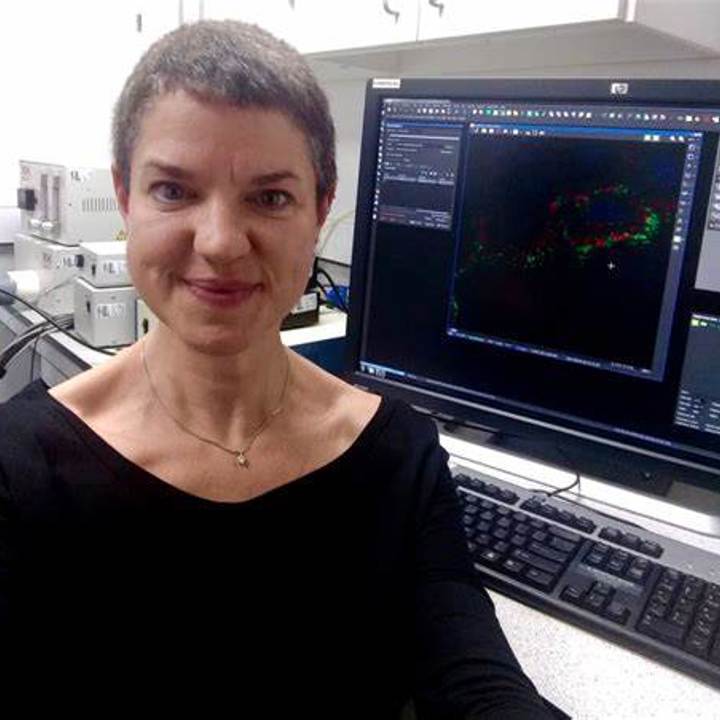
The 2019 Industry and Academic Collaboration Award was awarded to Maddy Parsons from King’s College London, UK. Maddy’s research is focused on using a range of live-cell advanced imaging approaches to enable precise spatio-temporal dissection of receptor and cytoskeletal signalling. A key focus of this research is in the development and implementation of novel microscopy approaches and FRET-based biosensors to study cell adhesion and migration signalling in 2D and 3D environments. Maddy has established collaborations with clinicians to uncover novel molecular mechanisms underpinning diseases such as skin blistering, cancer, wound healing and inflammation. She also heads a number of multi-disciplinary projects with physicists and biophysicists to develop new methods to define spatio-temporal signalling events in living cells, tissues and organisms. As a result of her interest and applications of advanced microscopy, Maddy has developed strong working partnerships with a broad range of industrial collaborators, including Nikon, which led to the establishment of the state-of-the-art, world-class Nikon Imaging Centre at King’s College London of which she is Director. She also currently works alongside a number of other biotech and pharmaceutical companies to develop and apply advanced imaging approaches to understand basic mechanisms that underpin drug discovery and therapeutic development.
Read Maddy's article published in Biochemical Journal - Regulation of cell migration by α4 and α9 integrins.
Of winning the Industry and Academic Collaboration Award, Maddy said: “I am absolutely delighted to receive the 2019 Biochemical Society Industry and Academic Collaboration Award. I am really passionate about Interdisciplinary collaboration, which makes this honour particularly special for me. This award is really shared with all the highly talented and innovative academic and industrial collaborators that I have been privileged enough to work with”.
Maddy presented her award lecture at the Biochemical Society conference ‘Cell Signaling and Intracellular Trafficking in Cancer Biology: Interplay, Targeting and Therapy‘ on 21-24 October 2019 in Turin, Italy.
Caroline Dean
Caroline Dean

